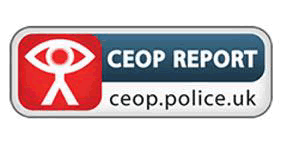
Online Safety
Here at Old Earth, the children use the internet on a regular basis as an integral part of their learning. In school, we have regular e-safety activities and assemblies to remind children of the importance of keeping themselves safe online.
To help us remember the main principles of staying safe online, we use the 'SMART' rules.
S is for safe
Keep your personal information safe. When chatting or posting online don’t give away things like your full name, password or home address. Remember personal information can be seen in images and videos you share too.
Keep them safe to keep yourself safe.
M is for meet
Meeting up with someone you only know online, even a friend of a friend, can be dangerous as this person is still a stranger. If someone you only know online ever asks you to meet up, for personal information or for photos/videos of you then tell an adult straight away and report them together on www.thinkuknow.co.uk.
A is for accepting
Think carefully before you click on or open something online (e.g. links, adverts, friend requests, photos) as you never know where they may lead to or they may contain viruses. Do not accept something if you are unsure of who the person is or what they’ve sent you.
R is for reliable
You cannot trust everything you see online as some things can be out of date, inaccurate or not entirely true. To find reliable information compare at least three different websites, check in books and talk to someone about what you have found.
T is for tell
Tell a trusted adult if something or someone ever makes you feel upset, worried or confused. This could be if you or someone you know is being bullied online. There are lots of people who will be able to help you like your teachers, parents, carers or contact Childline on 0800 11 11 or www.childline.org.uk.
Be SMART with a heart
Remember to always be smart with a heart by being kind and respectful to others online. Make the internet a better place by helping your friends if they are worried or upset by anything that happens online.
Key documents
Report a problem online
CEOP
Are you worried about online sexual abuse or the way someone has been communicating with you online? Report it to a CEOP Child Protection Advisor.
Report Remove
Childline’s new service allows you to report and remove nude images shared online.
Resources and Information
-

Think U Know
In school we use the Think U Know website, which provides activities for children to help them understand the importance of staying safe online. There is even a sections aimed at different ages, and for parents. Click on the links below to find out more.
-

Think U Know
Section for children aged 4-7
-

Think U Know
Section for age 8-10
-

Think U Know
Section for age 11-13
-

Think U Know
Section for parents and carers
-

Childline
Childline is a free helpline for children and young people. You can contact a trained counsellor at Childline by phone or online chat about anything. No problem is too big or too small.
Age range: Under 19
Call 0800 11111 or visit the website. -

Childnet
Childnet works to make the internet a safe and great place for children. Their website has lots of advice for parents, carers and young people.
-

NSPCC - Online Safety Advice
Advice, tools and resources to help keep every child safe online.
-

National Online Safety
National Online Safety regularly produce very helpful guides for parents on online safety, including the latest games, apps and privacy issues. A great way to stay up to date.





